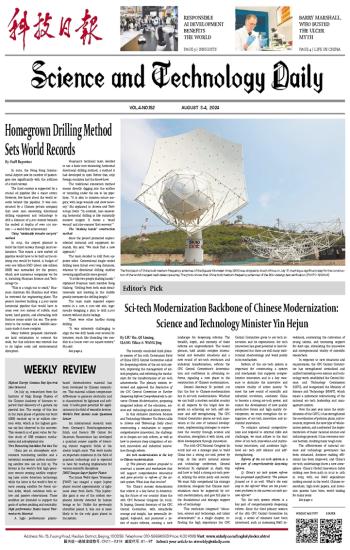
 |
| Visitors watch a robot dancing during the 2024 World AI Conference in Shanghai, east China, July 5, 2024. (PHOTO: XINHUA) |
The recent 2024 World AI Conference and High-level Meeting on Global AI Governance in Shanghai released the Shanghai Declaration on Global AI Governance, which proposes to promote the development of AI, safeguard its safety, build an AI governance system, strengthen social participation and enhance public literacy, and improve the quality of life and social wellbeing.
China's stance on AI governance is no quest for technological supremacy. Instead, it is a commitment to ensuring that AI serves humanity as a whole. This position was articulated clearly during the first bilateral AI safety dialogue between the U.S. and China held in Geneva in May.
China emphasized the need for "strengthening the global governance of AI" and advocated an expanded role for the UN in these efforts. This push is not just about countering U.S. dominance but about fostering a global consensus on AI safety and governance.
China has increasingly focused on AI safety measures, both domestically and internationally. Domestically, it has implemented strict regulations against deepfakes and harmful algorithms since 2018. Internationally, it has engaged in initiatives like the "Bletchley Declaration" to enhance AI security and reliability. The efforts reflect a commitment to addressing AI risks and fostering responsible development on the global stage.
China's approach to AI governance seeks to include voices from the developing world to promote a more equitable distribution of technological benefits. Forbes said China's Global AI Governance Initiative asserts that "all countries, regardless of their size, strength, or social system, should have equal rights to develop and use AI."
This inclusive vision was echoed at the recent China-Africa Internet Development and Cooperation Forum, which called for stronger representation of developing countries in global AI development and urged the UN to establish an AI governance institution.
China's regulatory framework for AI is advancing rapidly. It has introduced regulations targeting deepfakes, algorithmic recommendations, and generative AI, and is working on an AI law to consolidate these efforts. This regulatory environment underscores a commitment to align AI development with human values, a sentiment that resonates with the broader goals of global AI safety communities.
The Chinese government recognizes the transformative potential of AI amidst economic challenges and U.S. sanctions on key technologies. By scaling up the national computing capacity and investing in a nationwide network, it aims to close the gap with the U.S. and establish China as a leader in AI and other groundbreaking technologies.
China's rapid adoption of generative AI is another testament to its technological prowess. A survey by SAS and Coleman Parkes Research found that 83 percent of Chinese respondents in various industries reported using generative AI, the highest adoption rate among the surveyed countries. This rapid uptake is complemented by China's leading position in the generative AI patent race, with over 38,000 patents filed between 2014 and 2023.
Chinese companies, from tech giants like ByteDance to startups like Zhipu, are driving this innovation, developing robust domestic AI industries despite international restrictions. The competitive landscape is expected to fuel further enterprise adoption of generative AI, supported by advancements in continuous automated monitoring technologies.
China's multifaceted approach to AI governance, safety, and development positions it as a global leader not only in technological innovation but also in setting ethical and regulatory standards. A report by Concordia AI, a Beijing-based social enterprise focused on AI safety and governance, says there is a growing convergence of views on AI safety among major powers, driven in part by China's diplomatic engagements and regulatory progress.
China's AI vision is firmly rooted in the belief that technology should serve all. By advocating for inclusive global governance, advancing regulatory frameworks, and leading in AI adoption and innovation, China aims to ensure that the benefits of AI are distributed equitably and ethically across the world. This commitment underscores China's role as a responsible global leader in the technological era.

 Next
Next




